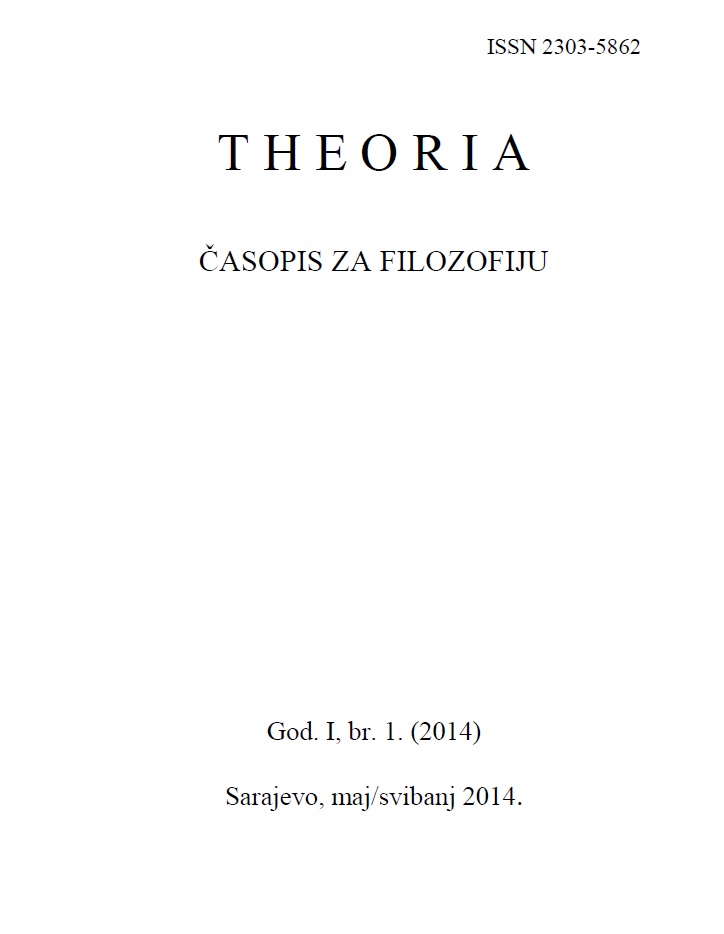Granice iskustva u fenomenologiji Bernharda Waldenfelsa
Bounderies of experience in the phenomenology of Bernhard Waldenfels
Author(s): Samir ArnautovićSubject(s): Social Philosophy, Early Modern Philosophy, Existentialism, Phenomenology, Ontology
Published by: Filozofsko društvo THEORIA
Keywords: phenomenology; living world; experience; boundaries of experience; boundaries of the living world; critique of Modernity; net of the living world; mind; understanding of the real world; thinking;
Summary/Abstract: The subject of philosophical interest is the world of life as the area of all events, but also a region of establishment of the meaning and formation of perception in which that meaning is determined. Experience, thefore, is not a cognitive factor, it is not just an element of recognition, but the central place of the relation of life. The boundaries of experience here are set up as boundaries of the world of life, and experience on its own is not understood, nor can be understood only as a direct relationship to reality, or direct perception of the real world. Experience appears as a decisively important area for the constitution of our reality and the establishment of a real sense. As a philosophy of experience, phenomenology has to have a social dimension, it has to be directed to solve philosophical problems in the context of social reality. It must not become sociology in any way, nor bring sociology under it's shelter. Philosophy without questioning sociology has to be directed to understanding social phenomena and solving problems that characterizes modernity in this context. In this direction phenomenology is the most decieve critique of modernity. The experience is not uniquely determined by the mind, as it is not solely determined by the bodily nature, nor is the unity of these two poles. It is expressed as a network intertwined with active relations in the living world on the basis which build certain order, regulation, ordering, in the perception of the life's world. The process of gaining experience in this sense, in the end, is incomplete, just as is unachievable the finality of the self in terms of closing an individual world by experience. The task of philosophy is to understand the real world, it's thinking from the experience of reality, and from those basis, to open possibilities for its transformation that will suit life demands. In the end, experience is always determined by foreign and by alienation as a part of self. Waldenfels thinks that philosophy has to speak about everyday life, but not become it. The crisis of methaphysic comes precisely from it's inability to face everyday life, from it's unwillingness to speak about everday life in a way that is acceptable to the subject of the debate itself. Forgeting this means to live with the past. The past as 'physical absenteeism' belongs to what we mark as an alien." Waldenfels sees the task of phenomenology in understanding of what is present in absence, but present in a way that has an inevitable influence on a reality of the reality. History of philosophy is, in fact, understood as a horizon of experience, but also as temptations which continuously bring into question meanings that this horizon offers in its entirety. Word here is not just about cognition, it is also about ourselves, the way we are determined by life flows. Waldenfels's phenomenology, in the context of the thinking of these problems, is an open thinking, which is expressed as the starting point of modern philosophy. Boundaries of experience, as the boundaries of the world of life, are set by the time which determines thinking. Phenomenology in this sense is the philosophy of experience.
Journal: Theoria časopis za filozofiju
- Issue Year: I/2014
- Issue No: 1
- Page Range: 102-114
- Page Count: 13
- Language: Bosnian

